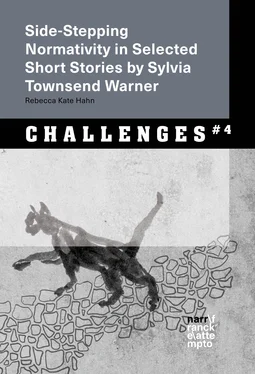Bruno not only attempts to make Gibbie healthier, but also more attractive. His initial beauty regime proves more successful than his imposed health regime but both fail to produce any lasting effects.
On the other hand, a course of beauty culture did wonders. Layers of grime were eased out of his [Gibbie’s] wrinkles, his scalp was frictioned, his eyebrows tailored. A slimming course gave him a new interest in life which lasted for over a fortnight. Then he went on the booze again, bungled his hoist onto a barroom stool, slipped, hit his nose on the rail – and was back where they’d started. Only the tailored eyebrows remained, and were embarrassing. (69)
From Bruno’s point of view, Gibbie’s body is a shapeless mess full of superfluous fats and fluids. From his dirt-ingrained wrinkles, to his untidy eyebrows – which Bruno makes him have plucked and dyed – Bruno attempts to give Gibbie’s ageing body a makeover. He prescribes head massages, tries to make Gibbie lose weight and does his best to make Gibbie presentable. The above examples show that Bruno is not prepared to accept the diversity of human bodies – to him all bodies must conform to a single norm. His attempts to “normalise” Gibbie, however, fail. Bruno does not succeed in inducing any sense of shame or unease in Gibbie. In the long run, Bruno remains impervious to Bruno’s efforts, refusing to allow them to permeate his life. In the same way as Mrs Brodie cannot change him by trying to impose her capitalist, heteronormative standards on him, Bruno cannot change him either. Both people fail to remove Bruno from the queer space he has opted to inhabit. On the whole, “Bruno” renders hetero- as well as homonormativity insignificant and refrains from subverting these concepts.
The Walled Kitchen Garden
In “Bruno”, the walled kitchen garden is a sexually charged place. It is associated with lust, knowledge, and desire and is both a site of inclusion and exclusion. Only the initiated know how to find it and, more importantly, how to enter it. It is notable that the reader is not included in this group and is never given a ‘key’ to solve the riddle of the garden. This approach is in keeping with the rest of the story which continually keeps the reader at a detached distance.
Gibbie is very protective of the garden, jealously hiding it away:
The lawn had its second mowing before Bruno discovered the kitchen garden. It lay a quarter of a mile from the house within a high brick wall. Its gate was kept locked; as a further precaution it was topped with iron spikes. Peering between the bars, he saw lettuces, peas, young carrots in disciplined rows, a tomato-house, a fruit-cage, and at intervals dead birds swinging from gibbets. In the first week Bruno would not have hesitated to demand the run of his teeth among the tomatoes and the peas and gooseberries – small quantities of which were vouchsafed by Henryson and implacably boiled by Mrs. Henryson. But now he had a changed Gibbie, a northern Gibbie, to handle, so he resorted to tablets of vitamin C, eked out by chewing sorrel and young conifer tips. (69)
The garden is situated on the periphery of the house. It is connected to the main building – fruit and vegetables are transported from the garden to the house – but the garden exists independently of the house. The garden is notably enclosed on all sides by a high wall that extends far upwards. The wall has been constructed for defensive purposes to keep intruders and thieves out. Additionally, the gate to the garden is locked and only a person in possession of a key can open the lock. The key and the lock add to the sexually charged atmosphere of the garden – keys being suggestive of the phallus and locks of body orifices. The walls are also secured with iron spikes, sharp pieces of metal that visibly demonstrate that anyone without a key is unwelcome. The worst threat, however, comes from the dead birds which form a striking contrast to the flourishing vegetation. Perversely, they also enable this form of vegetation. If they did not deter other birds from flying into the garden, there would be less fruit and vegetables.
In the passage quoted above, Bruno is depicted as an intruder intent on violating the garden. He is unable to enter, but he is able to stick his head between the bars and see what the garden has to offer. The produce he sees whets his appetite and drives his desire to gorge himself on the fresh fruit and vegetable. Just like Gibbie in an earlier scene, he wishes to consume what is in front of him. His desire, however, is much more unrestrained than Gibbie’s, since he, Bruno, wants the “run of his teeth among the tomatoes and the peas and gooseberries”. Mrs Henryson the cook, however, stalls his rapacious behaviour by boiling all the vegetables to a soft consistency until they no longer pose any temptation. Bruno realises that Gibbie, at this point, will not grant him access the garden. For the time being, he gives in to Gibbie’s wishes and resorts to tablets and plants he finds outside the walled garden. The “northern” Gibbie’s reluctance to open the garden up to Bruno is evidence of his fear that the garden will stimulate Bruno’s sexual appetite which he, Gibbie, will not be able to satisfy.
The walled kitchen garden gains even greater importance when Hector, eleven years old, arrives with his grandmother, Mrs Lilah Lumsden, Gibbie’s cousin. Up until Hector’s arrival, Bruno and Gibbie do not refer to the garden again, and Bruno makes no further attempts to enter it.
They [Mrs Lumsden and Hector] arrived. Bruno prepared himself for the sterner side of being a secretary. This included plucking and cleaning grouse in a whirl of feathers and bluebottles, since Henryson’s niece would rather face a bull than a maggot. The boy [Hector] was more stouthearted, and found maggots interesting and even a matter of congratulation. He would have taken on the grouse and asked no reward beyond entry to the kitchen and having something to do; but Bruno had a scruple of honor. He made an assault on Gilbert’s vassalage to Henryson and demanded the key of the kitchen garden. As he made the assault publicly, he got it. (77)
Hector’s arrival is of great advantage to Bruno since it gives him the excuse he needed to ask for the key to the kitchen garden. When asked in front of other people, Gibbie is forced to give in and provides Bruno with the keys.
He [Bruno] had not suspected figs; the bushes were not visible from the gate. While Hector rioted in the fruit-cage, he gorged on figs. No word was spoken between them and they walked silently back to the house. (77)
There is no transition between the two sentences “As he [Bruno] made the assault publicly, he got it [the key]” and “He had not suspected figs”. The abruptness with which the second sentence starts emphasises Bruno’s surprise at seeing figs and, more importantly, effortlessly places him and Hector in the middle of the garden. The narrator does not describe how they crossed the border between the house and kitchen garden only to find themselves in a very different world. By crossing over into this secret retreat, Hector escapes the control of his grandmother and can run wild in the fruit-cage.
Once Bruno discovers the figs, nothing can stop him and he feeds on them greedily. Figs are usually associated with female sexuality and in Genesis 3.7 Adam and Eve famously use fig leaves to hide their nudity (see The New English Bible ). Yet Warner does not comment further on the conventional associations of figs. Firstly, the fact that Bruno, a gay man, devours figs, considered a vulvic symbol, indicates her indifference to stereotypically gendered images. Secondly, Bruno never feels naked or ashamed after eating the forbidden fruit. Bruno feels the opposite in fact: he feels confirmed that he is beautiful.
Читать дальше












